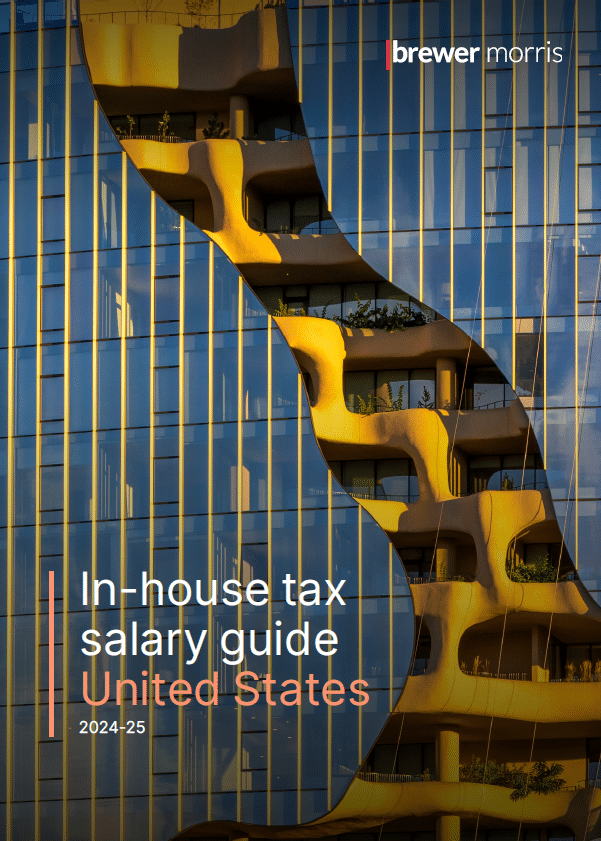Hiring without borders with Alex Hent

It is without doubt Covid has brought significant changes to society and the economy; the ripple effects of these impacts will be felt for many years. How has Covid affected tax recruitment specifically. The most immediate change was to that of flexibility and particularly working locations. As a result of video calls and online meetings – the recruitment talent pool has gotten much larger and changed how and where we secure talent. Our team has spent the last 12 months gathering feedback and consulting clients on this. Recently I invited Alexander Hent, Head of Tax of Deliveroo to share some personal insights. Alex currently lives in the Netherlands with his family and ‘commutes’ to the London HQ of Deliveroo.
We both addressed the need if any, for physical workplaces and how it impacts tax functions. Alex admits “I very much like human interaction and being in the office, it gives me energy and I can be much more affective in terms of my role as a leader and influencer”. With regard to his tax team though he stated
“I don’t mind where people work, as long as they are effective, have good feedback and are efficient”
he continued, „I am relying very much on my team to use their judgement, to ask themselves ‘how can I do the best job’, if the answer is I can do that a few days a week from home then ok so be it”. It has been well documented that a draw factor for talent, is flexibility, even pre pandemic; it directly co-related with longer staff retention. That said we discussed various pros and cons of fully remote versus fully office based and absolutely agreed that a ‘hybrid’ or ‘blended’ approach is the best way forward.
From a recruitment perspective there are huge advantages of location agnostic approach and of a virtual hiring process. Firstly, you open up your talent pool and people diversity endlessly. If location is no longer a priority, you can focus on finding the very best skillset. In Alexanders case for instance, there was a firm need from Deliveroo for a Head of Tax with experience within a complex US tech business. The core hubs for ‘east coast’ tech groups to establish rest of world tax functions have historically been the Netherlands, Luxembourg, and Ireland. Aided by the pandemic normalizing virtual work and work from home – Alexander was an obvious choice coming from Netflix. However, pre covid, would his appointment have happened?
When doing a hiring campaign for his own team he mirrored this; “for some roles the pool of talent is better elsewhere and so if you want to have the best person for the role and the person cannot relocate, the question is are you going to go for lesser talent because you want someone in country”. This sentiment is echoed amongst most Heads of Tax and CFO’s we recruited for in the last 2 years and a trend we see continuing. Alex and I discussed how this working dynamic although new to tax/finance teams, has been well established in other groups for years. Take engineers for example, it has long been the case they work a hybrid or fully remote model as that is the best way they can perform their work and this should set the trend for other roles in the business.

Another advantage of a virtual recruitment process is the speed at which you can screen candidates. There is no longer the need to take half days leave to have a first stage interview, nor the logistic barrier of coordinating diaries for a physical meeting. I asked Alexander about his experience with virtual onboarding, personally and in the search for his team. Is there a risk either side could ‘miss’ something in the absence of face-to-face interviewing? The conclusion was that if you adjust your process accordingly to what you are assessing, you don’t lose anything really.
From my conversations with a clients and candidates, the feedback is that while it is always helpful to have a face to face during the process, that this shouldn’t be a limiting factor. With correct technical and competency-based assessment you can ensure the right skillset. With regard interpersonal skills, in the absence of a face-to-face Alexander said he was a big believer in panel style interviews, to get a wider viewpoint from the current team and other decision makers. Nowadays it is becoming clear that the suite of soft skills is as important if not more so than technical skills in a hybrid/virtual workplace. Skills such as; communication, self-discipline, time management and ability to navigate complex stakeholder field are crucial to a successful hybrid dynamic, Alexander feels.
While the pros of virtual hiring and virtual working are becoming more apparent in most groups, by and large the tax market still feels a need for a physical workplace. In Alexanders opinion he still values “getting those quick touch points at the coffee machine where I see the CFO without having to book 30 minutes in a diary” and likewise for his team. From a staff perspective we mentioned the value of feeling a sense of belonging to a group which comes with time in an office. Further to establish a proper team dynamic, a foundation of trust and performance metrics, some face-to-face time is needed. Also, to avoid staff doubting their work and to ensure wins are celebrated.
In conclusion, remote working and remote hiring have a wide array of benefits to building the best tax team and keeping them. Placing higher priority on skills over location widens your talent pool and increases your success rate in finding the very best person for your role. It also lends to wider diversity amongst teams and flexibility results in higher rates of retention. Although its apparent we can now hire anywhere, there are some locations better than others and factors to be considered still. Research into the skillsets available in different locations is vital, for example benchmarking along with market and cost analysis. Having an office in the location you hire is important for the reasons mentioned; fostering a sense of belonging a foundation of trust and cohesive working and should be taken into account before a search.




